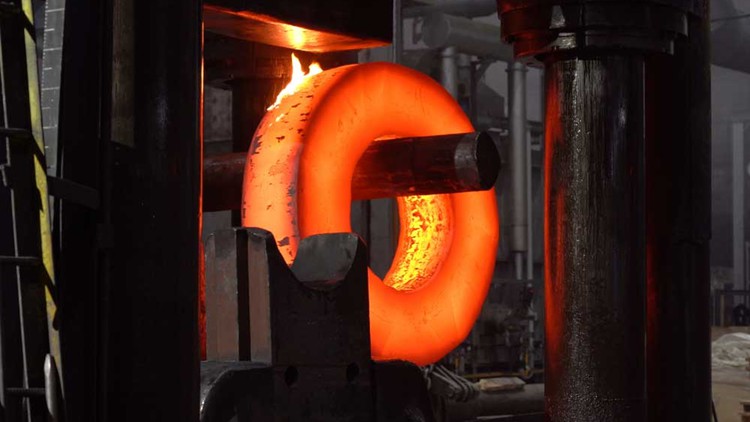
Mastering Techniques for Precision Manufacturing of Metal Components
What you will learn
The course covers various metal forming processes, such as rolling, forging, extrusion, wire and bar drawing, cutting, and bending.
Participants will be able to comprehend the advantages and disadvantages of each metal forming process and the types of products that can be manufactured.e
You’ll learn the pros and cons of each process and the types of products you can make, empowering you to make informed decisions for your projects.
In-depth coverage of the rolling process, including stages, analysis of flat rolling, side view of the process, and various types of rolling mills
he forging processes section covers open and impression die forging, flashless forging, differences between forging and machining processes and die terminology
In the extrusion process section, you’ll examine different types, advantages and disadvantages, analysis, and common defects.
Wire and bar drawing processes will be explored, including analysis and how different parts can be made using the process.
Sheet metalworking processes, including cutting and bending, will be covered, along with different types of processes, giving you a broad understanding.
The practical knowledge gained from this course is applicable to various industries, including manufacturing, engineering, and construction.
With this course, you’ll be able to make informed decisions on the most suitable processes for your products.
Description
The course on Metal Forming Processes-Bulk Deformation & Sheet Metalworking is of great importance as it is a critical area of study for students interested in pursuing careers in manufacturing, engineering, and materials science. Metal forming processes are used in various industries, including automotive, aerospace, construction, and more, making it an essential aspect of modern production processes.
By taking this course, students will gain a comprehensive understanding of the principles, theories, and applications of bulk deformation and sheet metalworking. They will learn about the different techniques used to shape metal and how to select appropriate materials for specific applications. This knowledge is crucial for designing, analyzing, and optimizing metal forming processes, which are essential for producing high-quality products at a lower cost.
In addition, this course will provide students with hands-on experience, including practical exercises and case studies. This hands-on experience will equip students with the skills needed to work effectively in real-world manufacturing environments. Overall, the course on Metal Forming Processes-Bulk Deformation & Sheet Metalworking is a valuable addition to any student’s curriculum and offers excellent career prospects in the manufacturing industry.
This course introduces students to the fundamental principles of metal forming, including bulk deformation and sheet metalworking. The course will cover a variety of metal forming processes, including rolling, forging, extrusion, wire and bar drawing, cutting, and bending. Students will learn about the advantages and disadvantages of each process, as well as the types of products that can be manufactured using them.
The course will begin with an in-depth look at the rolling process. Students will learn about the different stages involved in producing a product using the rolling process, as well as the analysis of flat rolling. They will also explore the side view of the rolling process and the various types of rolling mills.
Next, the course will cover forging processes. Students will gain an understanding of the types of products that can be made using the forging process, including the analysis of open-die forging and impression-die forging. They will also examine the difference between forging and machining processes, the flashless forging process, and the terminologies associated with forging dies. The course will also cover forging equipment, including forging hammers and forging presses.
The extrusion process is another important metal-forming process that will be covered in the course. Students will learn about the advantages and disadvantages of extrusion, as well as the different types of extrusion processes, including direct extrusion, in-direct extrusion, hot extrusion, impact extrusion, and continuous extrusion. The course will also explore the analysis of the extrusion process, as well as common defects that can occur in extruded parts.
Wire and bar drawing is another metal-forming process that will be covered in the course. Students will learn about the analysis of the drawing process and how different parts can be made using this process.
The course will also cover sheet metalworking processes, including cutting and bending. Students will learn about the analysis of the cutting process, as well as other cutting operations such as cutoff and parting, slotting perforation and notching, and trimming shaving, and fine blanking. They will also gain an understanding of bending sheet metal and the types of bending processes, including V bending and edge bending.
Content